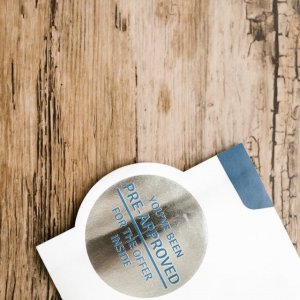Obtaining a Third Party Debt Order Over a Bank Account
Garnishee Order over a Bank Account
This is the December 2010 / January 2011 insolvency related article on "third party debt orders" that appeared in Business Cornwall magazine. The article was written by Chris Parkman, managing director of Purnells Insolvency Practitioners.
This insolvency article is the second in a series of four in relation to how a creditor can more effectively obtain repayment once they have obtained a County Court Judgment (“CCJ”) against the debtor who owes them money.
A third party debt order is usually made to stop the defendant taking money out of his or her bank account. The money you are owed is paid to you by your customer’s bank from that bank account directly under the terms of a Court Order. The debtor is not permitted to take money out of the bank account before his bank settles the debt owing to you.
A “third party debt order”, as explained in my first article, can also be sent to anybody who owes money to the defendant.
Before any third party debt order can be obtained, the person applying for the order (you, the creditor) must first have been through the necessary steps to obtain a County Court Judgment. This process is addressed in detail in the first article in this series published in the November edition of this magazine. That first article can also be found on this website.
Under the procedure, as part of the Lord Chancellors reforms of March 2002, a bank or building society where it is thought the debtor may have funds, will be served by fax immediately after the order is made.
When a bank or building society has been served with the interim Third Party Debt order they are required to locate all accounts held in the sole name of the debtor. The accounts will then potentially be frozen, preventing any funds from being withdrawn from that account.
If you are the creditor applying for order against your debtor, you must consider carefully when you make the application, as the day the Third party is served with the order is the day when the bank accounts are effectively frozen. If this, for example, happens to be a few days before that debtor is to receive their monthly salary or payment for an order, then it may be unlikely that there will be enough funds to be paid to you, the creditor, as there may not be much in the bank account.
In some cases a judgment debtor may apply for a hardship payment order which requires them to demonstrate that having their accounts frozen has caused them or their family to be unable to meet their daily living costs. Should a hardship payment order be granted, the judgment debtor will be given a set amount of funds from those accounts to satisfy their daily living costs. It is, however, very difficult for a Company who owes money to apply for a similar “hardship” order.
Having a third party debt order issued to freeze a bank account is not something your debtor’s bank manager will have had to deal with often and as you can imagine it sends alarm bells ringing for the bank, especially where there may be multiple accounts with negative balances.
In addition to this, having a bank account frozen without notice can be extremely problematic for the company concerned and may prevent other vital bills being paid in time, such as rent and employees’ wages.
So what information do you need to keep to give you more power when you need that power? From this article it is apparent that you need to know the bank name, address, sort code and account number of every one of your customers. This can be easily achieved by taking a photocopy of each of your customer’s cheques in the good times.
For more information on this topic you can read more on our website at https://www.purnells.co.uk/limited-company/CCJ/garnishee-order-over-bank-account.html
When applying for a third party debt order over your debtor’s bank account we always recommend that you instruct your regular solicitor.
Chris Parkman BSc, MABRP Licensed Insolvency Practitioner
Purnells Licensed Insolvency Practitioners & Chartered Accountants - Cornwall offices in Truro, Falmouth and other offices elsewhere.
Tel: 01326 340579
Fax: 01326 241519
E-mail: chris@purnells.co.uk
Web: www.purnells.co.uk
Summary
Obtaining a third party debt order over your customer debtor's bank account is often a very successful way of enforcing a Count Court Judgment (CCJ)
Would you like us to give you a call?
Fill in the form and we'll give you a call as soon as we can to discuss your needs in a free initial consultation with a Licensed Insolvency Practitioner. Alternatively give us a call on 01326 340579 if there is an urgency to your needs.
The information provided will be used solely to contact you and any information you provide will be held in accordance with our firm's privacy policy, and not used for marketing purposes.






